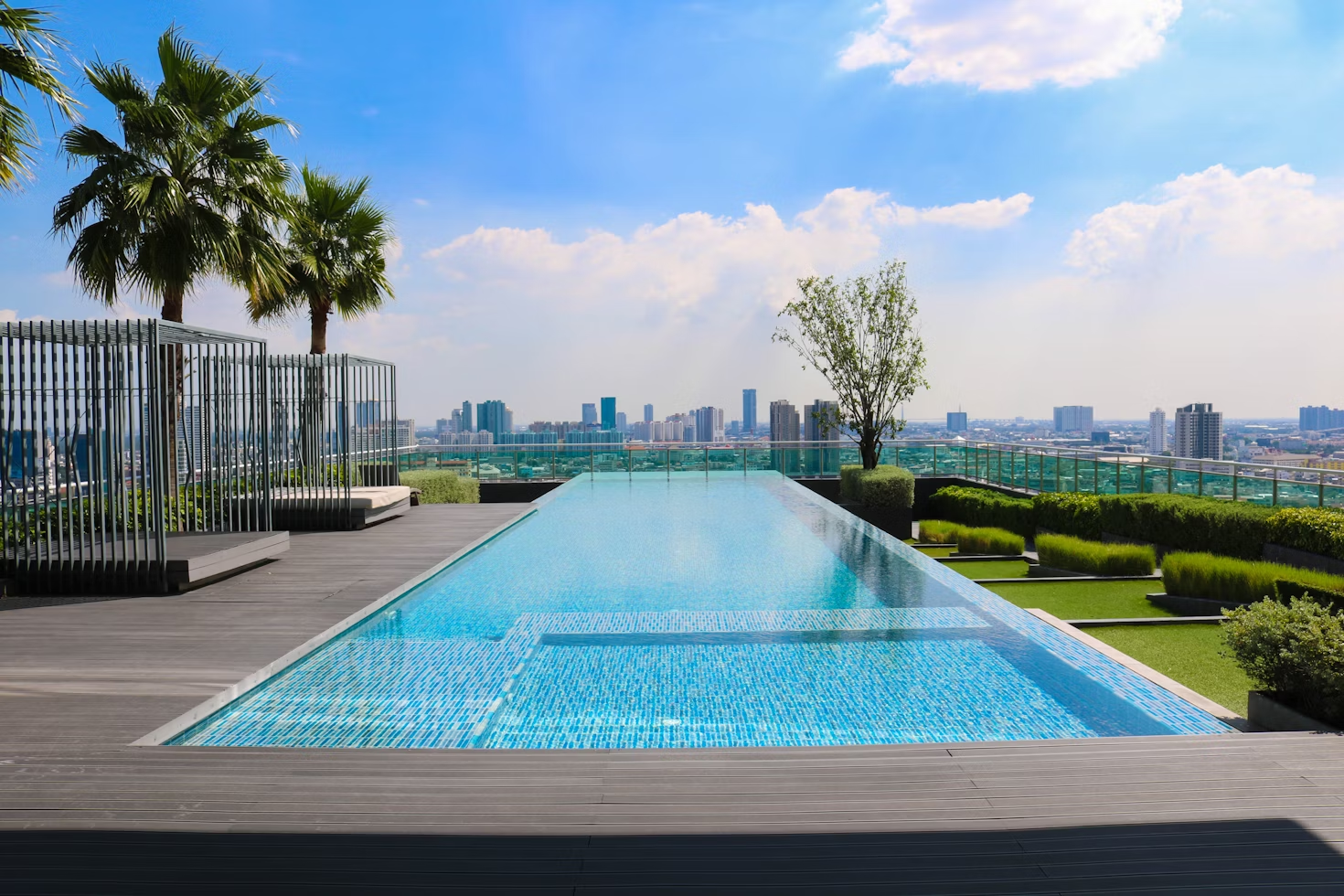Impact of Gas Heating on Pool Water Chemistry

Having a swimming pool on your property involves some responsibilities. A part of maintaining the perfect pool experience requires careful attention to water chemistry, especially when using gas pool heating Brisbane. This is because gas heaters can have several effects on water chemistry that pool owners need to manage.
Here is how gas heaters impact pool water chemistry and ways to mitigate them:
Increased Evaporation
Gas heaters rapidly raise the temperature of the pool water, which can lead to a higher rate of evaporation, particularly in climates with huge temperature differences between day and night.
As water evaporates, the overall volume of the pool decreases. This reduction in water volume can cause the concentration of chemicals in the pool to increase, leading to imbalances. For example, the levels of chlorine, pH, and total alkalinity might rise as the water evaporates, making the pool water more corrosive or irritating to swimmers.
Warmer water holds less dissolved gas, which can cause pH levels to increase as carbon dioxide is released from the water. This phenomenon is known as outgassing and can result in a higher pH level, making the water more alkaline. Alkaline water can reduce the effectiveness of chlorine, causing potential issues with water clarity and algae growth.
The Need for More Frequent Chemical Balancing
Due to the effects of increased evaporation and elevated water temperature, you may need to perform chemical balancing more frequently when using gas pool heating. Chemical balancing involves adjusting the levels of pH, alkalinity, calcium hardness, as well asa sanitizer (such as chlorine) to maintain comfortable swimming conditions.
pH Levels. When pH levels are too high, chlorine becomes less effective at sanitizing the water, which can lead to issues with algae and bacteria. High pH levels can also cause scaling on pool surfaces and equipment, leading to costly repairs.
To mitigate the impact of a gas heater on pH levels, you should regularly test the water and add pH-reducing chemicals like muriatic acid or sodium bisulfate, as needed. It is recommended to maintain the pH levels within the ideal range of 7.2 to 7.8 for the comfort of the swimmer and effective sanitation.
Alkalinity.Total alkalinity acts as a buffer for pH, helping to stabilize it and prevent rapid fluctuations. However, increased evaporation and gas pool heatingcan cause alkalinity levels to rise.This happens if the pool is regularly topped off with water that has a high alkalinity content. Elevated alkalinity can make it more difficult to adjust pH levels and can contribute to scaling on pool surfaces.
To maintain balanced alkalinity levels, test and adjust the alkalinityregularly using the right chemicals. The ideal range for total alkalinity is typically between 80 and 120 parts per million (ppm). If alkalinity levels are too high, they can be reduced by adding an acid-based chemicalsuch as muriatic acid.Make sure to avoid drastic changes in pH while doing the process.
Calcium Hardness. This refers to the concentration of calcium ions in the pool water. High water temperatures, which are common when using a gas heater, can cause calcium to precipitate out of the water, leading to scaling on the pool’s surfaces and equipment. Scaling not only affects the appearance of the pool but can also reduce the efficiency of the heater and damage other equipment.
To manage calcium hardness, test the water and adjust the calcium levels as needed. The recommended range for calcium hardness is between 200 and 400 ppm. If the calcium hardness is too high, dilution with fresh water may be necessary to bring it back within the ideal range. Alternatively, using a sequestering agent can help prevent calcium from precipitating and forming scale.
Sanitizer Levels.The effectiveness of sanitizers like chlorine can be affected by the changes in water chemistry caused by gas pool heating. As the pH level rises, the active form of chlorine becomes less effective, reducing the ability of the pool to kill harmful microorganisms. This can cause issues with safety, water clarity, and algae growth.
To ensure effective sanitation, pool owners should regularly test and adjust chlorine levels, keeping them within the recommended range of 1 to 3 ppm for free chlorine. If the pH level is consistently high, a higher chlorine dosage may be required to maintain effective sanitization.
Mitigating the Effects of Gas Heaters on Water Chemistry
While gas heaters can complicate pool water chemistry, there are several strategies that you can use to maintain a balanced, safe swimming environment:
Regular Water Testing and Maintenance.Frequent testing of the pool water is essential for maintaining proper water chemistry when using gas pool heating. It is important to test pH, alkalinity, calcium hardness, and sanitizer levels at least once a week, and more frequently if needed. Using a reliable test kit or digital tester can provide accurate readings and help identify imbalances before they become serious problems.
Use of a Pool Cover.A pool cover is an effective way to reduce evaporation and heat loss, which can be intensified by using a gas heater. By covering the pool when not in use, it helps retain the warmth generated by the heater, leading to lower heating costs and minimizing water loss. This helps preserve water levels and reduces the frequency of chemical adjustments needed to maintain balanced water chemistry, making it an essential tool for efficient pool maintenance.
Proper Heater Sizing. Yourgas pool heating unit should be properly sized for the pool to prevent overheating and excessive evaporation. A heater that is too powerful for the pool can raise the water temperature too quickly, leading to rapid evaporation and imbalances in water chemistry. Consult with a professional to select the right size heater and adjust the thermostat to maintain a comfortable yet moderate water temperature.
Regular Maintenance. Routine maintenance of the gas heater and other pool equipment is crucial for preventing issues with water chemistry. Clean the heat exchanger of the heater and inspect for scale buildup to help maintain its efficiency and prevent the release of unwanted chemicals into the water. Also, maintainproper water circulation and filtration to ensure that chemicals are evenly distributed throughout the swimming pool.



